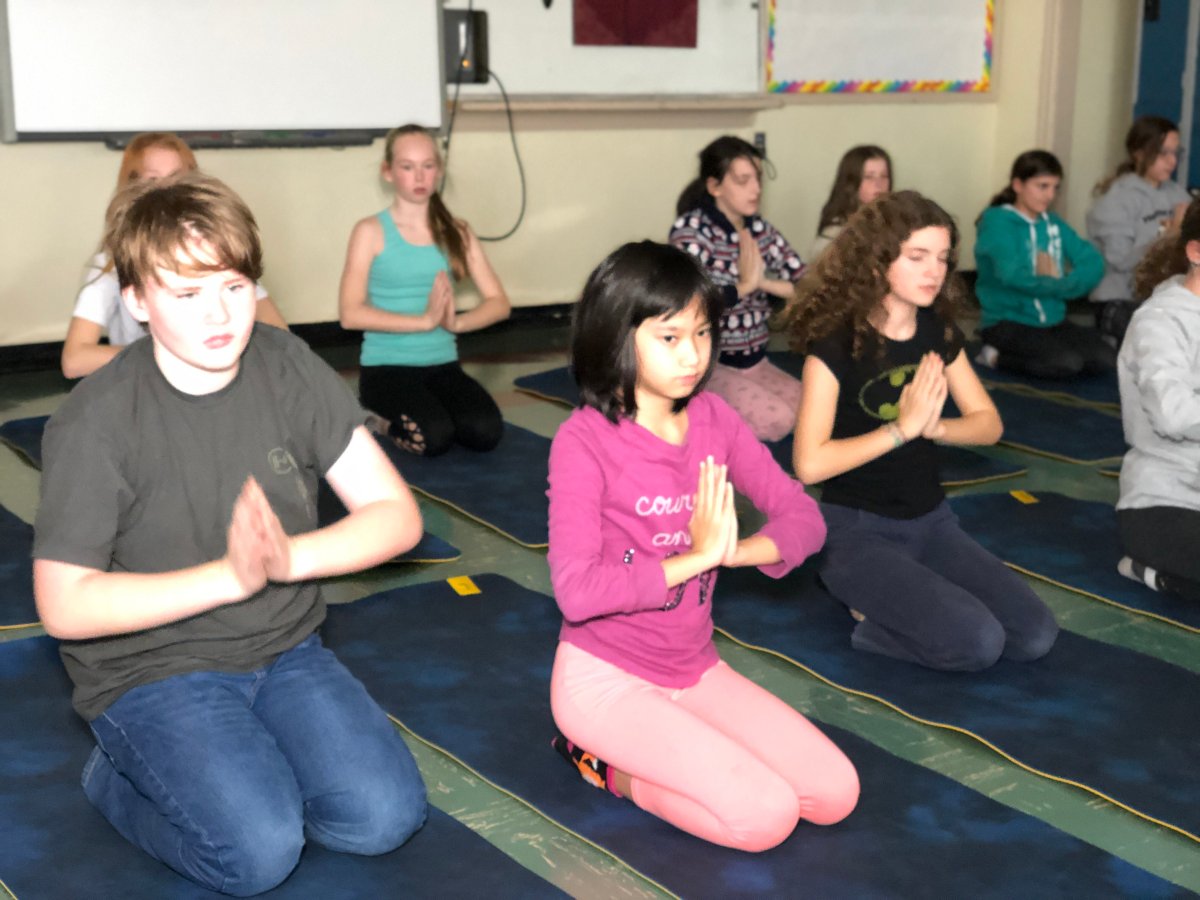New Brunswick students in grades 6 to 12 are facing several challenges related to mental health, according to the latest New Brunswick Student Wellness Survey (NBSWS).

The survey, a provincial initiative from the Department of Social Development’s wellness branch in co-operation with the Department of Education and Early Childhood Development, included data from over 39,000 students and aimed to examine their perceptions, attitudes and behaviours in a number of key areas related to student well-being, such as their social and physical environment, teaching, learning and health.
READ MORE: N.B. report sheds light on children, youth struggling with poverty, social exclusion
Data collection and analysis for the 2018-19 survey were conducted by the New Brunswick Health Council (NBHC), and 98 per cent of eligible public schools and two First Nations schools participated.
The 2018-19 survey shows that approximately 30 per cent of all students had a need to talk with someone about a mental or emotional problem in the 12 months before the survey, and 10 per cent of students reported not having their needs met.
Symptoms of anxiety or depression were also reported by 48 per cent of students, compared with 40 per cent in the 2015-16 edition.
“When we look at the reasons the students gave for not speaking with someone, we see definite opportunities for improvement,” said Stéphane Robichaud, CEO of the NBHC, in a media release.
READ MORE: ‘They’ll always have a need’ — N.B. mother calls for more efficient disability supports
“More than 20 per cent reported that they did not know where to go for help, and 70 per cent reported that they did not feel comfortable talking about their issue with the services that are available.”
- ‘Super lice’ are becoming more resistant to chemical shampoos. What to use instead
- Solar eclipse eye damage: More than 160 cases reported in Ontario, Quebec
- Invasive strep: ‘Don’t wait’ to seek care, N.S. woman warns on long road to recovery
- Canadian man dies during Texas Ironman event. His widow wants answers as to why
One school, Hillcrest School in Moncton, is combating the growing mental health needs by incorporating daily yoga sessions into the school activities.
Teacher Debi Breau launched the new yoga program at the school in September hoping to help students who may be feeling anxious become more grounded.
“I have just noticed a huge difference in the kids as well and it just warms my heart,” said Breau who said she’s seen a marked decrease in anxiety among students.
Ian Moore, a 10-year-old, takes part in her classes.
“Sometimes I feel a little anxious at school and I think that yoga almost nullifies the anxiety,” said Moore.
The NBHC’s survey also shows that a lack of proper sleep and the use of technology are having an impact on student’s mental health.
READ MORE: Province looking to add new mental health, addiction recovery beds
“For many of our youth the shift in social interaction has left them feeling far more isolated and less social interactions and that does play an important role,” said Robichaud.
He said that school and community programs that support students’ sense of overall well-being are now becoming even more critical to their overall mental health.
Breau believes that yoga is one of those programs.
The survey also captures information on students’ use of drugs and alcohol as well as tobacco usage, including vaping, and their relationships with family, friends and school.
According to the survey, smoking daily or occasionally increased among youth from 11 per cent in 2015-16 to 14 per cent in 2018-19.
The number of youth who have tried e-cigarettes also increased notably from 11 per cent to 29 per cent.
When it comes to students’ relationships with family and friends, the survey shows that 79 per cent of youth with mental fitness needs reported being satisfied with their family relationships, roughly the same as the 80 per cent in the 2015-16 edition.
READ MORE: New Brunswick launches program to assist First Nations students become job-ready
Moreover, 81 per cent of students reported being highly satisfied with friends emotionally and mentally, compared to 82 per cent in 2015-16.
The survey report also outlined some suggestions to students, parents and educators to tackle growing mental health needs, encouraging students to use the survey results to engage in dialogue, organize a student wellness club or help plan activities with students, staff or community members.
Parents and communities can also use the results to share their skills, talents and expertise to support the school and the community and to work with community groups to help address identified issues, the report suggests.
The survey also encourages educators to use the results to incorporate wellness objectives into improvement plans, support requests for funding such as the School Wellness Grant and enhance delivery of services or programs for students, like counselling and breakfast programs.





Comments